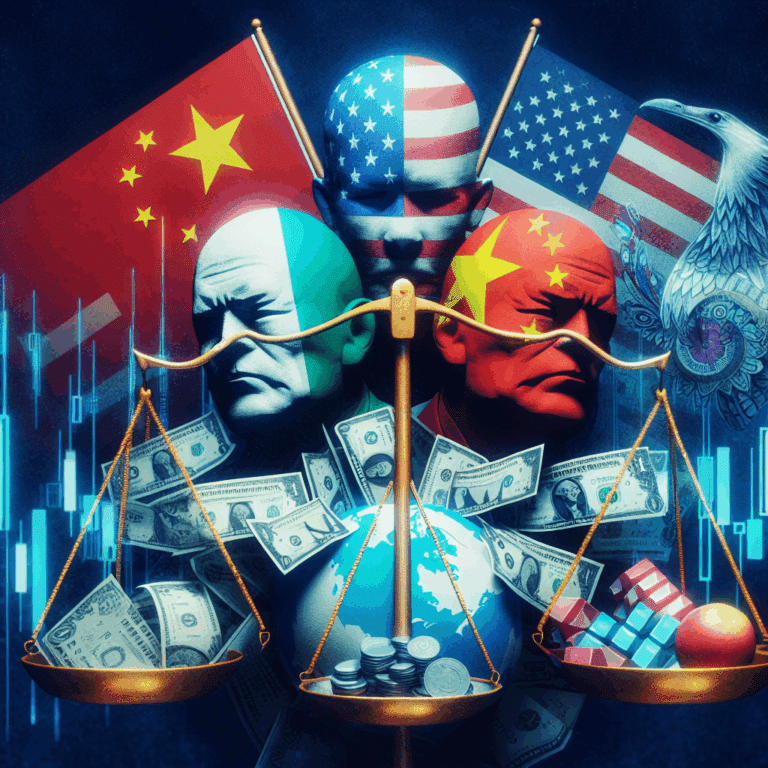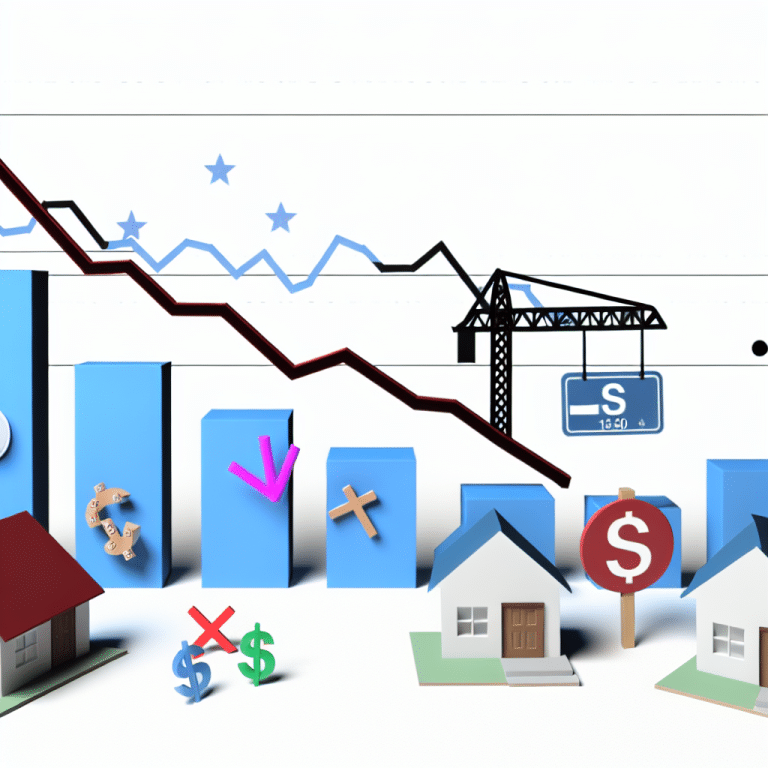China’s Probe into Ex-Regulator Yi Huiman Signals Heightened Scrutiny in Financial Oversight—What This Means for Market Stability and Investor Confidence
China’s Financial Watchdog Shake-Up: What Investors Must Know Now
In a dramatic development shaking the foundations of China’s $12 trillion capital markets, Yi Huiman, the former chairman of the China Securities Regulatory Commission (CSRC), is under investigation for serious disciplinary breaches. This move is the latest chapter in Beijing’s relentless anti-corruption campaign that has been sweeping through the financial sector—from banking titans to stock market overseers.
Yi’s investigation, announced by the Communist Party’s Central Commission for Discipline Inspection, marks a significant moment in China’s financial regulatory landscape. He is the second top regulator in a decade to face graft allegations and the third to be ousted since 2016. What does this mean for investors, both domestic and international? And how should financial advisors recalibrate their strategies in light of these upheavals?
The Pattern of Purges: A Deeper Look
Yi Huiman’s tenure at the CSRC (2019-2024) was bookended by turbulence. His predecessor, Liu Shiyu, was removed in 2019 amid scandals involving bribery and favoritism. Before Liu, Xiao Gang was fired in 2016 after the regulator’s mishandling of a $5 trillion market crash. Now, Yi’s fall signals a persistent pattern: China’s leadership is determined to root out corruption and restore trust in its capital markets.
This crackdown is not merely about discipline; it’s a strategic maneuver by President Xi Jinping to elevate China’s financial system to “financial superpower” status. With US-China relations strained and the risk of financial decoupling looming large, China is doubling down on internal governance to attract and retain investor confidence.
Market Impact and Investor Sentiment
Under Yi’s watch, the Shanghai Composite Index gained a modest 9%, starkly trailing the Dow Jones (87%) and S&P 500 (103%) over the same period. The 2024 plunge of the A-share index to a five-year low, coinciding with Yi’s removal, triggered a crisis of confidence among over 200 million individual investors. This demographic is crucial—they represent the backbone of China’s retail investment market and are highly sensitive to regulatory stability and economic signals.
Yi’s legacy includes the overhaul of China’s IPO system, shifting to a registration-based process. While this reform aimed to streamline listings and align with global standards, it also flooded the market with new shares, contributing to volatility and investor caution. Additionally, the launch of the Star Market, China’s Nasdaq-style exchange, was a notable achievement but has yet to fully realize its potential amid ongoing regulatory uncertainties.
What’s Next? The Rise of Wu Qing and Regulatory Tightening
Yi’s successor, Wu Qing, dubbed the “Butcher of Brokers,” is tasked with restoring market confidence. Wu’s background as former chairman of the Shanghai Stock Exchange and executive vice mayor of Shanghai suggests a no-nonsense approach to cleanup and reform. Investors should anticipate continued regulatory scrutiny, especially targeting brokerages and financial intermediaries that may have skirted rules.
Actionable Insights for Investors and Advisors
-
Reassess Exposure to Chinese Equities: Given the regulatory volatility, investors should critically evaluate their holdings in Chinese stocks, especially those heavily influenced by state-owned enterprises or reliant on regulatory approvals.
-
Diversify Listing Venues: With nearly 300 Chinese companies worth $1.1 trillion considering alternatives to US exchanges amid geopolitical tensions, investors should monitor cross-listing trends and consider opportunities in Hong Kong or mainland exchanges.
-
Focus on Quality and Transparency: The shift to a registration IPO system places greater emphasis on corporate disclosure. Investors should prioritize companies with robust governance and transparent financials to mitigate risks.
-
Stay Alert to Policy Signals: China’s financial reforms are deeply intertwined with political objectives. Advisors must keep a close watch on policy announcements from the CSRC and related bodies to anticipate market shifts.
-
Prepare for Increased Volatility: Regulatory purges and economic pressures may lead to short-term market swings. Employing hedging strategies or maintaining liquidity buffers could prove prudent.
Unique Perspective: The “Valuation with Chinese Characteristics” Dilemma
Yi Huiman famously coined the phrase “valuation with Chinese characteristics,” promoting investment in state-owned enterprises (SOEs) trading at discounts. While this approach aligns with China’s economic model, it poses a challenge for foreign investors accustomed to market-driven valuations. As regulatory scrutiny intensifies, the valuation gap may widen, requiring investors to adapt their models and expectations accordingly.
Final Thoughts
China’s ongoing regulatory shake-up is a double-edged sword. On one hand, it signals a commitment to cleaning up the financial system and enhancing market integrity. On the other, it introduces uncertainty and potential volatility that cannot be ignored. For investors and advisors, the key lies in vigilance, diversification, and a nuanced understanding of China’s unique market dynamics.
As the global financial landscape evolves, those who stay informed and agile will be best positioned to capitalize on the opportunities—and navigate the risks—emerging from China’s financial reform era.
Sources: South China Morning Post, Caixin, Reuters, Bloomberg
For investors seeking to deepen their understanding of China’s market shifts, Extreme Investor Network will continue providing exclusive insights and actionable analysis. Stay tuned for our upcoming deep-dive on the Star Market’s growth potential and the evolving role of SOEs in China’s capital markets.
Source: China investigates former stock market regulator Yi Huiman for disciplinary breaches







